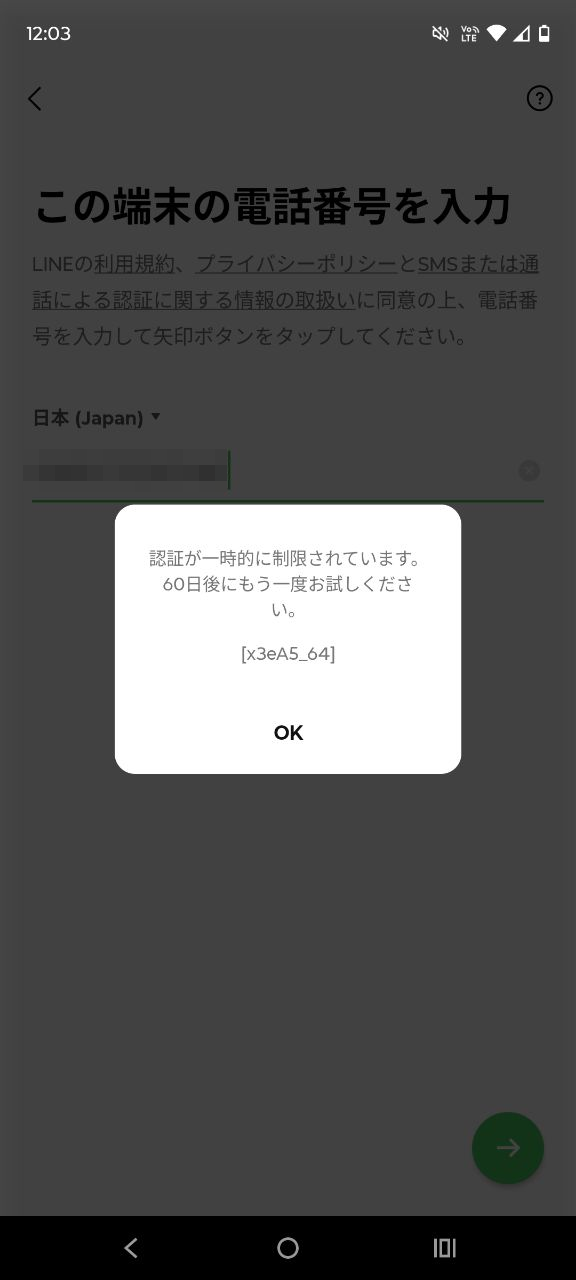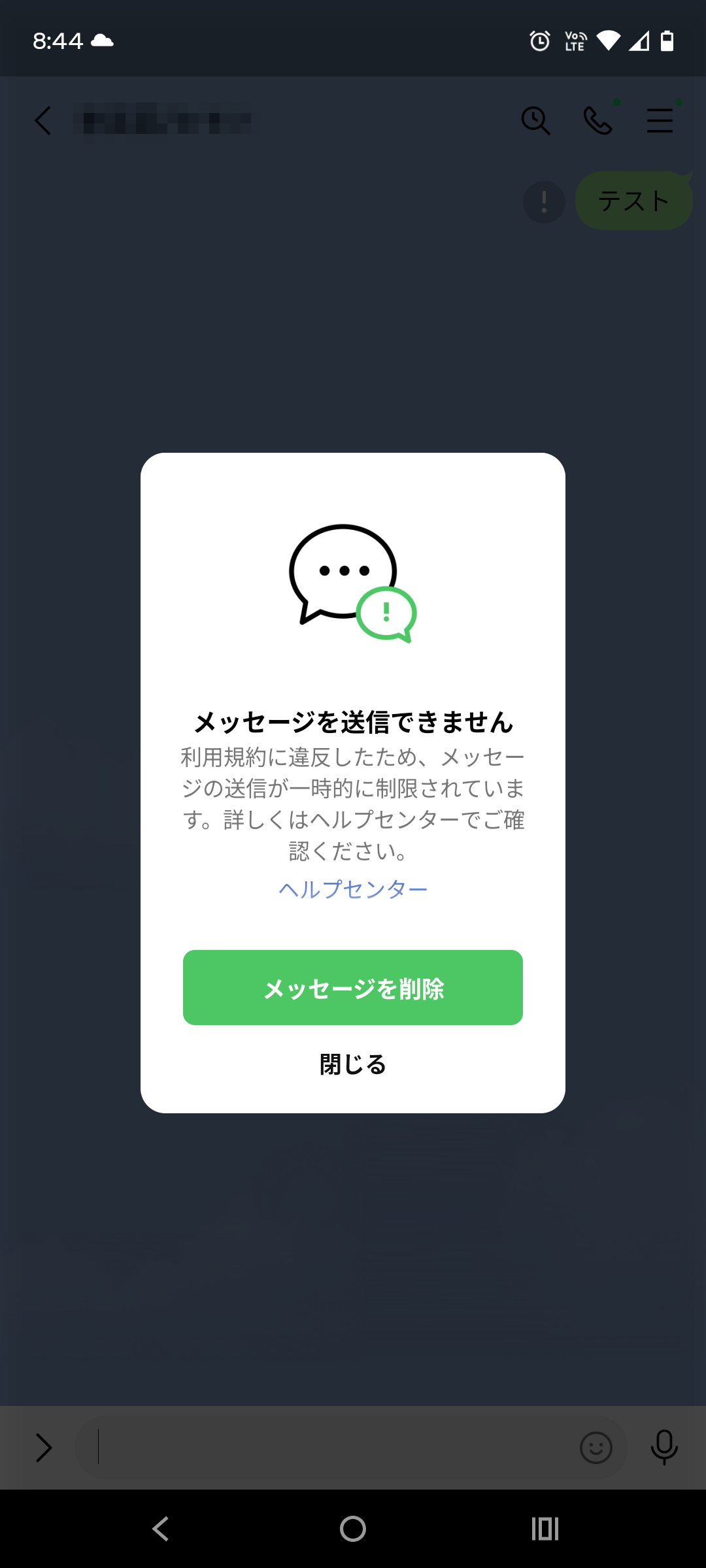Soft-Banned from LINE: A Tale of Arbitrary Platform Justice
In April 2025, I found myself on the receiving end of what can only be described as arbitrary platform justice when LINE, Japan’s dominant messaging platform, soft-banned my account. What followed was a months-long ordeal that highlights the precarious nature of our dependence on digital platforms and the concerning lack of transparency in their enforcement actions.
The Initial Ban
On April 29th, 2025, I was suddenly greeted with an error message when trying to access my LINE account: “Authentication is temporarily restricted. Please try again after 60 days. [x3еA5_64].” No warning, no explanation, just an instant lockout from a service I routinely use for work communication.

Finding LINE’s official support channels proved to be a challenge in itself—the company seems to deliberately obscure how users can contact them for help. After considerable searching, I finally managed to reach their customer support, only to receive a frustratingly generic response (translated from the original Japanese):
“Thank you for using LINE and related services. This is LINE Customer Support.
Your service may have been suspended due to actions that violate the terms of service. The main criteria considered as violations of the terms of service are as follows:
• Posting content that is not socially acceptable, such as abusive language, obscene materials, or other obscene expressions
• Exchanging personal information (phone numbers, addresses, LINE IDs, etc.) or persistently soliciting or requesting one-on-one meetings
• Illegal activities including prohibited drug transactions and illegal transactions such as stocks
• Planning or soliciting unhealthy meetings or gatherings for minors”
The response provided a generic list of potential violations but offered no indication of which, if any, of these categories supposedly applied to my case. This cookie-cutter approach to customer service only added to the frustration of an already opaque process.
The Partial Recovery
After the 60-day period expired on June 28th, I regained access to my account, but the damage was done. All of my chat history—years of conversations, important business communications, and personal memories—had been completely wiped. Worse still, I discovered I could no longer send messages. Every attempt was met with an error: “Message sending is temporarily restricted due to violation of terms of service.”

This state has persisted for over three months now, effectively rendering my LINE account useless for its primary purpose: communication.
Legal Action
Given the significant impact on both my personal life and business operations, I decided to take legal action. On July 16th, 2025, my lawyer sent a formal notice to LINE Yahoo Corporation, citing several concerning issues1:
- Lack of transparency: No specific reason was provided for the enforcement action
- Potential privacy violations: The action suggested improper monitoring of private communications
- Breach of service contract: While LINE is technically a free service and users may not be legally entitled to continued access, the platform’s business model relies heavily on advertising revenue from users like myself. Given the extensive advertisements we encounter in the app and LINE’s critical importance in Japanese society, there is a reasonable expectation that service should be provided consistently and fairly
The legal notice also highlighted that LINE, with its 98 million monthly users in Japan, functions as critical social infrastructure, making arbitrary restrictions particularly problematic.
LINE’s Response
LINE’s response to the legal notice was disappointingly predictable and unhelpful. We received their response on August 14th (dated August 7th in their printed letter). They merely stated that the account had violated section 15 of their common terms of service2 regarding “compliance matters when using our services,” and that they would provide no further guidance on the matter.
This response perfectly encapsulates the problem with platform governance today: companies wielding enormous power over users’ digital lives while providing minimal accountability or transparency.
The Broader Implications
My experience with LINE illustrates several troubling trends in digital platform governance:
Arbitrary Enforcement
Platforms can and do take enforcement actions without providing meaningful explanations. Users are left to guess what they might have done wrong, making it impossible to avoid future violations.
Disproportionate Punishment
Even if I had violated some terms of service (which I maintain I did not), the punishment—complete loss of chat history and indefinite messaging restrictions—seems disproportionate to any reasonable interpretation of platform violations.
Lack of Appeal Mechanisms
Despite following proper channels and even engaging legal representation, there appears to be no meaningful way to appeal or resolve platform enforcement actions. The company simply states its position and refuses further engagement.
Digital Infrastructure Dependency
When platforms like LINE become essential infrastructure for daily communication and business operations, arbitrary enforcement actions can have severe real-world consequences that extend far beyond the digital realm.
Lessons Learned
This experience has reinforced several important principles for digital life:
- Diversify communication channels: Never rely solely on a single platform for critical communications3
- Regular backups: Export important data regularly, as platforms can and will delete your content without warning
- Platform alternatives: Maintain presence on multiple platforms to reduce dependency on any single service
- Document everything: Keep records of platform interactions and potential violations for legal protection
Moving Forward
While my LINE account remains in limbo, I’ve adapted by migrating to alternative communication platforms and ensuring better redundancy in my digital communications. However, this transition comes with its own challenges: I now need to explain to all my contacts that I am no longer reachable on LINE—a platform that nearly everyone in Japan uses as their primary communication method.
Technically, I could potentially create a new LINE account with a new phone number, but why should I go through this hassle when I did nothing wrong? The principle matters. Obtaining a new phone number and re-establishing all my contacts shouldn’t be necessary when the original enforcement action was unjustified and opaque.
The broader issues of platform accountability and user rights remain unresolved. This represents the current status of my case as of August 2025. My legal battle with LINE continues, and I will keep readers posted about any developments. The fight for platform accountability and user rights is far from over.
The tech industry often speaks about “moving fast and breaking things,” but when those things include people’s livelihoods and social connections, the human cost becomes unacceptable. As digital platforms become increasingly central to modern life, we need better frameworks for accountability, transparency, and user protection.
Until then, we’re all just one algorithmic decision away from digital exile.
-
As of this writing, my legal fees related to this case amount to about ¥120,000. ↩
-
LINE Terms of Service: https://terms.line.me/line_terms?lang=en ↩
-
In some extreme cases, I even resorted to sending physical letters through snail mail to friends when I had no other contact details but knew their home addresses. ↩